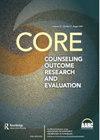Empowerment Evaluation: A Practical Strategy for Promoting Stakeholder Inclusion and Process Ownership
引用次数: 3
Abstract
Abstract Empowerment Evaluation is an evolving approach based in empowerment theory, self-determination theory, and evaluation capacity building theory. This strategy prioritizes a wrap-around approach that situates program stakeholders at the center of evaluation activities and collaborators in the development of many key processes. By adopting an empowerment evaluation approach, all stakeholders are subjected to an immersive learning experience which culminates in pride in ownership over the initiatives. In this article, we introduce the underlying principles of the three-step empowerment evaluation framework (Fetterman, Empowerment evaluation (pp. 20–42). SAGE Publications, Inc., 2015) and provide examples that can guide evaluation capacity building for programs and organizations. We illustrate how evaluators can assist programs and organizations in developing a mission, taking stock of their current status, and planning for the future. We provide a case example of an empowerment evaluation of an autism services collaborative using the three-step framework. Implications for evaluators of counseling and mental health programs are discussed.授权评估:促进利益相关者包容和过程所有权的实用策略
授权评价是在授权理论、自我决定理论和评价能力建设理论的基础上发展起来的一种评价方法。该策略优先考虑了一种环绕式方法,该方法将项目涉众置于评估活动和许多关键过程开发中的协作者的中心。通过采用授权评估方法,所有利益相关者都受到沉浸式学习体验的影响,最终以对计划的所有权感到自豪。在本文中,我们介绍了三步授权评估框架的基本原则(Fetterman,授权评估(第20-42页))。SAGE Publications, Inc., 2015),并提供可以指导项目和组织评估能力建设的示例。我们说明了评估人员如何协助项目和组织发展使命,评估他们的现状,并为未来做计划。我们提供了一个使用三步框架对自闭症服务协作进行授权评估的案例。对心理咨询和心理健康项目评估者的影响进行了讨论。
本文章由计算机程序翻译,如有差异,请以英文原文为准。
求助全文
约1分钟内获得全文
求助全文
来源期刊

Counseling Outcome Research and Evaluation
Psychology-Psychology (all)
CiteScore
4.50
自引率
0.00%
发文量
11
期刊介绍:
Counseling Outcome Research and Evaluation (CORE) provides counselor educators, researchers, educators, and other mental health practitioners with outcome research and program evaluation practices for work with individuals across the lifespan. It addresses topics such as: treatment efficacy, clinical diagnosis, program evaluation, research design, outcome measure reviews. This journal also serves to address ethical, legal, and cultural concerns in the assessment of dependent variables, implementation of clinical interventions, and outcome research. Manuscripts typically fall into one of the following categories: Counseling Outcome Research: Treatment efficacy and effectiveness of mental health, school, addictions, rehabilitation, family, and college counseling interventions across the lifespan as reported in clinical trials, single-case research designs, single-group designs, and multi- or mixed-method designs.
 求助内容:
求助内容: 应助结果提醒方式:
应助结果提醒方式:


